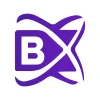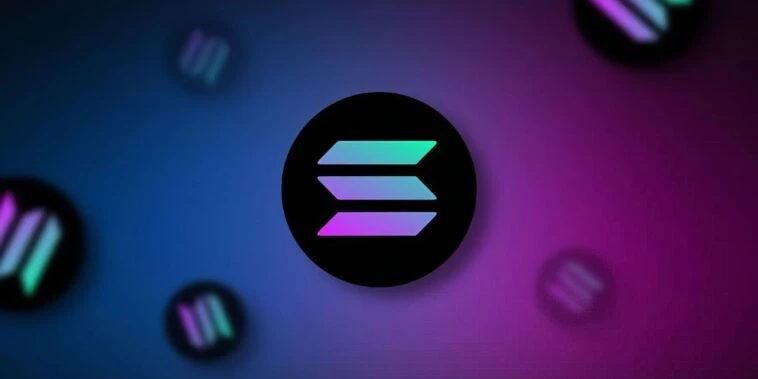NFTs (non-fungible tokens) have become an integral component of collectables and digital art markets in recent months, with demand growing exponentially. NFTs are digital assets that represent ownership of an object such as an art work or collectible; unlike cryptocurrency which can be exchanged against equivalent assets for exchange.
Solana, an extremely high-performance cryptocurrency platform, makes an ideal candidate for developing NFT marketplaces due to its fast transaction speeds and relatively low transaction costs. In this blog we will walk through each step involved in building one using Solana: from technological aspects such as minting and creating NFTs all the way through to practical issues when expanding or creating the marketplace itself using Solana blockchain.
Benefits of the NFT Market in Solana
Building an NFT marketplace on Solana is an incredible way to take advantage of blockchain's low costs and high-performance transactions. By tokenizing digital assets and employing smart contracts to regulate asset selling/buying transactions, an NFT marketplace created on this platform could become a secure, decentralized marketplace that lets users trade their digital assets effectively - anyone with enough skills and knowledge could easily create such an NFT marketplace with Solana!
NFT marketplaces such as Solana offer many advantages to both sellers and buyers alike, including:
Scalability and Speed: Solana is a high-performance blockchain capable of processing thousands of transactions per second, meaning NFT marketplaces based on Solana can handle large volumes quickly and efficiently - an excellent option for creators wishing to offer digital goods for sale.
Solana's design allows for low transaction fees, enabling customers to purchase and sell NFTs at reasonable costs.
Use-Friendly Platform: Solana has been designed with user-friendliness in mind, making it simple for anyone to participate in NFT's marketplace.
Solana provides creators and buyers access to an international market by being decentralized and accessible worldwide, giving both creators a global audience as well as buyers access to unique digital assets from around the globe.
How will the NFT Marketplace function on Solana?
Solana offers an NFT (non-fungible token) marketplace, using their Solana blockchain, to build and manage non-fungible tokens (NFTs). NFTs may be used as digital representations of artworks, digital collectibles or various digital assets digitally.
Here is a brief outline of how an NFT marketplace for Solana operates:
NFTs (Not Fund Transfers) can be created and issued using the Solana blockchain with smart contracts.
After being listed for sale in the market, NFTs can be browsed and purchased using Solana's native currency, SOL.
Once a customer purchases an NFT they own, it can be transferred into their digital wallet while their payment details are recorded in Solana's blockchain system. Solana blockchain.
Solana's blockchain will also keep an accurate record of any transactions related to NFTs owned, with transactions tracked using Solana.
Solana Blockchain offers fast and cost-effective transactions, which makes the NFT marketplace easy for selling, buying, and trading NFTs.
How an NFT market for Solana could operate depends upon its individual implementation and intelligent contract that facilitates exchange.
Solana Financial Trust (Solana FT) has begun the process of building an NFT marketplace.
Creating an NFT marketplace on Solana requires knowledge of blockchain technology, contract programming techniques, familiarity with Solana Blockchain APIs, platforms and tools (such as Solana's Javascript SDK ) used to develop your marketplace and experience with creating an NFT marketplace.
Non-fungible currencies (NFTs) have created an entirely new marketplace for digital assets - leading to many NFT marketplaces on Solana that are rapidly expanding. If you are considering opening your own NFT platform on Solana there are a few essential steps that must be followed for its successful establishment.
Planning and Research
In Solana's first step of establishing an NFT marketplace, conducting research and creating plans are paramount in understanding competition, market and customer needs, as well as creating the framework for its success.
Market research involves gathering information on the state of the NFT market by identifying trends and analyzing demand in Solana for an NFT marketplace. Furthermore, it's vital to understand and monitor competition as well as understand current NFT market characteristics like strengths and weaknesses.
Based on your study, You can identify various features and functions that will be available in the market. These might include minting and transferring National Financial Tokens as well as providing an easy-to-use interface and exchange platform where users can buy, sell, or trade NFTs.
Design and Development
Development and design is the second step of creating an NFT marketplace on Solana and includes creating user experiences and interfaces, as well as the smart contracts needed to create, transfer, and manage NFTs using the Solana blockchain.
Designing an interface and user experience for NFT market success is of utmost importance. A user-friendly, visually attractive, and user-centric design should make finding and purchasing NFTs simple for end users.
Development of smart contracts to be used on Solana for use in its NFT market is an integral step, as these contracts are responsible for creating and transferring NFTs - thus must be secure as well as bug-free to ensure transactions take place without disruptions or complications. Developers should possess knowledge about intelligent contract development as well as Solana blockchain to create reliable smart contracts that work as intended.
Testing and Quality Assurance Services.
Once an NFT marketplace has been designed and constructed using Solana, testing and quality assurance are crucial in order to make sure it functions without any bugs. This will guarantee an ideal user experience on the blockchain platform.
Testing and Quality Assurance help uncover any flaws or errors with smart contracts or user interfaces prior to the launch of the market. Testing may include both automated testing as well as manual testing of developers; automated tests such as Truffle or OpenZeppelin for smart contract testing while Selenium or Cypress is often used for user interface checks; these tools help detect bugs in code that reduce time and money spent during development.
Manual testing is another integral element of QA processes. Developers are able to manually test smart contracts and user interfaces to identify issues that automated testing tools might miss. You can test various scenarios on a marketplace - different types and amounts of NFTs traded between users - in order to ensure its functionality and stability, providing the optimal user experience while creating a trustworthy marketplace to trade NFT trade. By thoroughly testing marketplace functionality developers can be sure it functions perfectly without bugs that might hinder trade operations in future versions of their NFT exchange platform.
Deployment
Deployment refers to the process of uploading smart contracts onto the Solana blockchain and making their marketplace accessible for consumers. To effectively deploy contracts onto this network requires extensive knowledge about it as well as knowing the optimal way to implement smart contracts on it. In order to guarantee smart contract security it's vitally important that they are used appropriately and safely - this can be accomplished by reviewing code before testing on a testnet prior to being deployed onto mainnet.
Once implemented and opened to users, a National Financial Trading Market will become live for NFT buyers to start trading, purchasing and selling NFTs.
Utilizing smart contract technology on Solana's blockchain enables its marketplace to be made publicly accessible while also making the NFT marketplace available and functional for customers. However, it is vital that these smart contracts are used safely in order to offer customers an entrustable platform.
Maintenance and Up-dating of Equipment (Maintenance/Update of Equipment)
Establishing an NFT marketplace for Solana requires considerable work. Once completed, its maintenance must continue as part of an ongoing process to meet user demands. Maintenance involves checking for bugs or problems in the market and fixing issues when they arise - including security holes that arise and any that arise unexpectedly that require attention or repairs - so as to keep things running smoothly.
Updates are an integral component of managing an NFT marketplace on Solana. This involves adding new features, improving the functionality of existing ones and making changes that stay current with users' latest developments and demands. Staying relevant and competitive requires keeping markets up-to-date; innovations such as adding different kinds of NFTs as well as trading options or innovative methods of engaging with them could attract new customers while simultaneously keeping existing ones.
Solana makes creating an NFT marketplace an achievable goal with proper planning, preparation and execution. Utilizing its capabilities it's possible to build an efficient yet dependable NFT marketplace capable of handling large volumes of transactions easily while offering customers an effortless customer experience.
Conclusion
If you're seeking to establish an NFT marketplace, we suggest exploring and assessing Solana as the platform. In our blog post "How Do You Create An NFT Market Using Solana," we covered its advantages as a host for such markets, along with resources and tools available for use during development processes. Hopefully, this blog post has provided you with valuable information on this subject; consider Solana for hosting it! We recommend considering Solana as one option among many options when building such markets.


